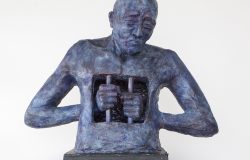This week marked the start of the Jewish New Year with Yom Kippur falling on Wednesday. Yom Kippur is the holiest day in the Jewish calendar and is also known as the Day of Atonement. A common greeting that you may hear Jewish people sharing at this time is, “May your name be inscribed in the Book of Life.”
This language imagines God as judge, sitting on the divine throne of justice, reviewing our deeds. On a table before God lies a large book with many pages, as many pages as there are people in the world. Each of us has a page dedicated just to us. Written on that page, by our own hand, in our own writing, are all the things we have done during the past year. God considers those things, weighs the good against the bad, and then decides “who shall live and who shall die”. Uber-Power right?
Prior to Yom Kippur, observant Jews will be reviewing the year that was and making atonement for their transgressions. We can see atonement as the act of making amends for a wrong doing – a reparation of sorts and bringing us back to at-one-ment with a universal standard of what good looks like. So if we move aside peculiar, cultural and religious belief systems, and instead operate from a place where this term ‘God’ is a metaphor, what purpose would atonement serve for us?
Three months back when I was in Zimbabwe caring for my dad, as he became more bed-ridden, I ended up lifting him and trying to move his body so that bed sores wouldn’t set in. Not being a nurse by training, and probably worrying about hurting him, I chose to ‘put my back into it’ and returned home with muscle spasms trapped in my shoulders.
I have, since returning, discovered the wondrous and nimble hands of Yuni from Li’s Massage Centre. Yuni manages to seek out and destroy my amalgamated muscular pain and he is relentless in his attack. I find myself practising the breathing techniques my wife used in childbirth as I breathe through the pain. After the caring but aggressive pummelling from Yuni, he hands me a herbal tea and I breathe out. It’s one of those sigh-breaths. Like when you have had a huge sob and you exhale in staccato stutters of air. I guess physical and emotional pain can hide in muscles as well as in our minds.
The other night I was plagued by sleeplessness. I had woken up at 1:30am and I could feel that something was not right in the State of Cal. I scanned my feelings, replayed the movie of the day before, paused my remembrance of moments until I could pin point the knot of unresolved emotion in my mind. On reflection, I realised I had knowingly trespassed against what mattered for someone else. I needed to mentally massage out this tangle of actions and work out how to fix my mistake. Tired and crusty eyed, the next day I knew I had a workable plan. I could re-influence, propose new approaches and make amends.
How we see life and the act of living our life in this world makes us God of all we see, do and experience. We create the meaning for our lives. When it comes time for Atonement, we are the divine judge assessing the goodness and badness of our actions. Some may view this as blasphemous, but let’s hold aside judgement of that nature.
The burning question for me is this: what is the moral code by which we evaluate our life’s performance? What wakes me at 1:30am? What causes me to store stress and hurt in a muscle? What allows me to release that memory? What frees me and gives-for-me (forgives me) a sense of release from guilt, sin, worry or shame? There must be some universal measure from which I draw my standard of what living a good life looks like so I can create a meaning I can live within.
Prior to consciousness, before we become aware of time and space, we all have a trans-rational, pre-atomic state from which we are all formed – this is the Ultimate Reality that the Hindu Vedas reference. Each of the four Vedas have metaphysical speculations, known as Upanishads. Among the various discussions in these Upanishads there are Grand Pronouncements. Tat Tvam Asi, translated variously as “That is what you are,” is one such Pronouncement. This means that each one of us in our original, pure, primordial state – is wholly or partially identifiable or identical with some sort of Ultimate Reality.
Tat Tvam Asi is equivalent to telling a wave that it is nothing but the ocean. There is no purpose in kidding ourselves when we have done something wrong. Transgressions against another are only transgression against ourselves because we are all in the same ocean. When our body or our minds alert us to disturbances in our being I think we are obliged to take notice. Restore harmony. Ensure we are living up to the code through which we are all connected. Atonement then is the remembrance that my true nature is no different to yours. We are all in this ocean together making individual meaning within this shared universal form.
Whatever rituals in which you partake please include a remembrance that whilst your individual wave matters, the ocean matters too. Get to know your wave and what your wave is here to do and let it be part of our ocean. And when we atone we make the ocean a better place to be for all of us.






